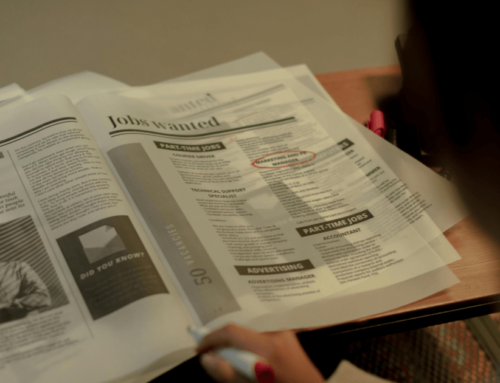Returning to work after a career break
Returning to work after a career break, as daunting as it may appear, can be made even more difficult by a lack of confidence. A career restart is a significant undertaking, regardless of the reason for your hiatus, whether it was to care for your children or pursue your interests. It will not suffice to flood employers with resumes or CVs.
Unfortunately, there is no magic number of resumes or CVs that will get you results, but as experienced Career Coaches, we have discovered that applicants who apply to 10 to 15 jobs per week have the best results.
A balance needs to be struck between relevant, tailored resumes and a plethora of opportunities for success.
To achieve the best outcomes, you must seize as many opportunities as possible.
To help you achieve your goal of getting back into the work, here are some tips and steps you can action right away:
1. Why have you taken a career break?
In the last few years, what have you been up to? That’s what prospective employers are going to ask you. Make sure you know the reason inside and out and that you can confidently share it with others. If you chose to pursue your passion, it was a choice you made, and you don’t need to apologise for it. It’s okay to take a break from work for any reason (if your ‘career break’ was due to being in prison, this will be a further post).
All your statements should be true, of course, but you get to decide what the story is about. Second, you’ll need a solid answer to the question of why you’re returning to work in the first place.
Your goal is to avoid appearing desperate!
Consider the aspects of your job that you enjoyed before you took a break to come up with a good response. Speak about your career’s passion, your desire for intellectual stimulation, your aspirations, and your drive.
It’s also crucial to consider these factors in the context of the job you’re applying for. Why do you want to work for this company in particular? What issue do you want to assist them with? How do you relate to their mission and values as a company?
Getting your career story straight by asking yourself all these questions will help you before your first job interview.
Types of Career Break
- Affected by COVID-19 or other factors that have rendered you unemployed
- A maternity or paternity leave has been taken
- An illness, whether physical or mental,
- Taking a sabbatical
- Looking after a family member
- Burnout or stress forced you to take a long break
Uncertainty about returning to work is common, regardless of the reason for the career break. There is a possibility that you are worried about returning to a new work environment or that your job will change in some way. When working from home, getting back into the fold without the support of co-workers and supervisors can be a daunting prospect for some people. These changes can make returning to work even more difficult.
2. Maintain (or re-establish) your professional connections.
Taking a break from work does not mean that you must completely give up on your career. Look for ways to stay in touch. Consulting, volunteering, and freelancing are all examples of this. It’s all about keeping at least one foot in the working world.
While laying the groundwork for my business, I reduced my full-time hours to part-time hours. To make sure there was no conflict of interest, I discussed this option with my employer. With their approval, I was able to maintain a connection with a working environment whilst working on my passion. As a team some of our career coaches are freelancers.
If you haven’t kept up with your career during your break, it’s not too late to get back into the swing of things. As a matter of fact, reconnecting should be a key component of your career relaunch plan. Start accepting projects as soon as possible, even if they are for friends or non-profit organisations. It will be worth it in the end.
3. Update your Resume/CV
Find your resume/cv and start applying for jobs. Begin by catching up on work-related tasks that you have put off during your career break. This includes any volunteering work you may have completed, it is just like with any other work experience. Investigate whether your resume will pass the ATS (Application Tracking System, there are many employers that use this system to shortlist suitable candidates and it is worth doing some research on how your resume is read).
The “objective” section at the top of your resume, for example, is no longer recommended by many experts. Instead, it has been recommended that you replace it with the keywords from the job description that you have developed throughout your career.
Do some research to find relevant keywords. It is possible to see what words employers are using in job descriptions, and then use those words in your resume. Once you’ve optimised your resume for keywords, you can focus on customising it for each job you’re applying for to increase your chances of getting an interview with the company.
4. Network
Reconnect with former colleagues. Meet for a cup of coffee and don’t be afraid to talk about returning to employment and that you are looking for suitable opportunities.
Tell your family, friends, and acquaintances that you’re looking for a new job. Most people obtain employment through personal connections.
Every week, try to attend a business networking event. Even a virtual networking event can lead to new opportunities. There has been a lot written about how people should approach networking and doing some research on the subject may be beneficial. In general, keep in mind that your networking goal isn’t about an instant win. Many experts advise against expecting (and especially not asking for) a job at a networking event. You’re there to meet new people and form friendships.
Ask people you already know or look on the internet for networking opportunities. A simple Google search for “networking opportunities” (in your area) should generate results. Also, check out Meetup.com and Eventbrite.com.
5. Social Media
Job seekers are increasingly using social media websites for networking, and employers are using them to learn more about potential employees. Build your personal brand, make new connections, and further your efforts by using social media sites like LinkedIn, Facebook, and Twitter.
Improve your LinkedIn profile and make sure it corresponds with your resume. Also, stay away from the most common LinkedIn headline blunders. You’ll stand out to recruiters and hiring managers if you have a strong social media presence, and they’ll see how proactive you are about trying to relaunch your career.
6. Get Involved
Look for ways to get involved within a working environment that aren’t limited to attending networking events. Create a blog about your field. Examine and comment on existing blogs and online forums. Make a name for yourself as a contributing member of the community. Organize a networking event or volunteer for a networking organisation. Attend a class. These items will help you increase the effectiveness of your networking efforts.
Others will regard you as an expert in your field if you are actively involved in your community and industry. Don’t be afraid to take a chance and try something new. Get out there, participate, and establish a reputation for yourself!
7. Be Creative and think outside the box!
Think outside the box when it comes to job opportunities. Don’t define yourself solely based on your previous work experience. Assess your abilities and see how they can be applied to various jobs. These are transferable skills that can be used in a variety of situations. They can be extremely beneficial when attempting to relaunch your career, particularly if you are changing careers.
Know what you can do and how your skills can help prospective employers—even if it’s a position you’ve never held before. Consider which jobs have the best chance of bringing you happiness in your career.
8. Don’t let opportunities pass you!
A short-term or fixed-term contract position could lead to a job offer, you’ll gain new experience, build relationships, and add to your resume in the meantime.
9. Interview Preparation
The day will come when a prospective employer will request a meeting with you.
A job interview can be particularly intimidating for someone who has taken a break from work. Preparation is the most effective option for interview nerves.
Consider what questions you will be asked and how you will respond. Research the company on the internet. Make a list of smart interview questions to ask in response. Allow a friend to assist you in practising with a mock interview. The better prepared you are, the more assured and confident you will be.
10. Don’t give up!
What is the best career advice? Be persistent and don’t give up on yourself. Without hard work and perseverance, you would not have gotten to where you were prior to your career break. And you’ll need those characteristics to get back to where you want to be.
Remember that if you want to restart your career, you can. Possessing the right mindset is half the battle. Other than that, it’s all about planning.
This list of 10 steps will help you relaunch your career after a hiatus, no matter how long you’ve been away.
Are you looking for a job? We can assist you! Contact us today to receive one-on-one career coaching, as well as resume and cover letter reviews.





